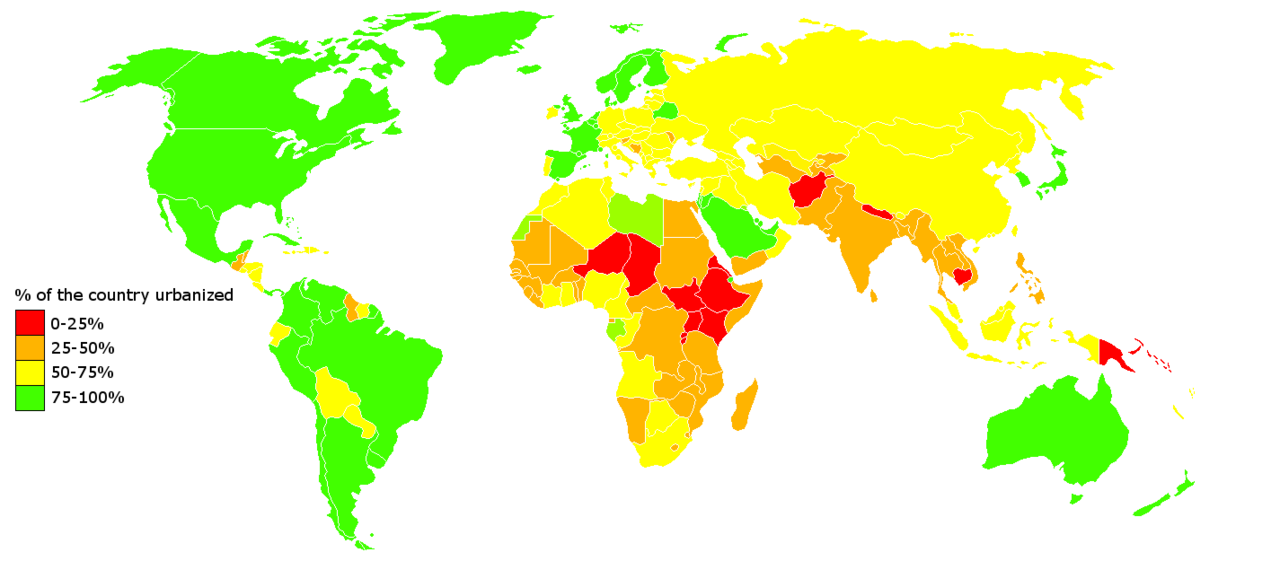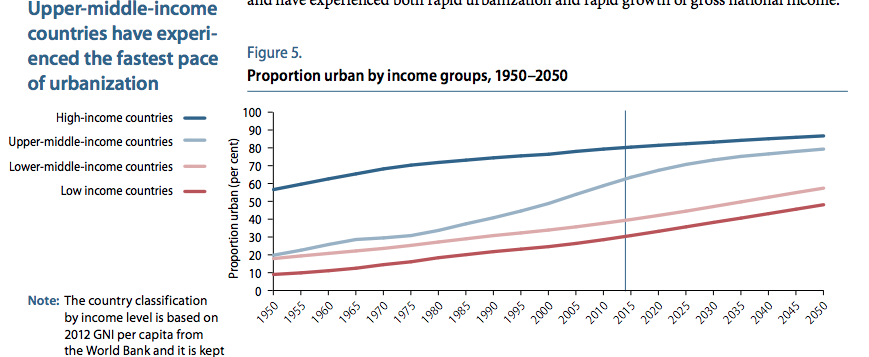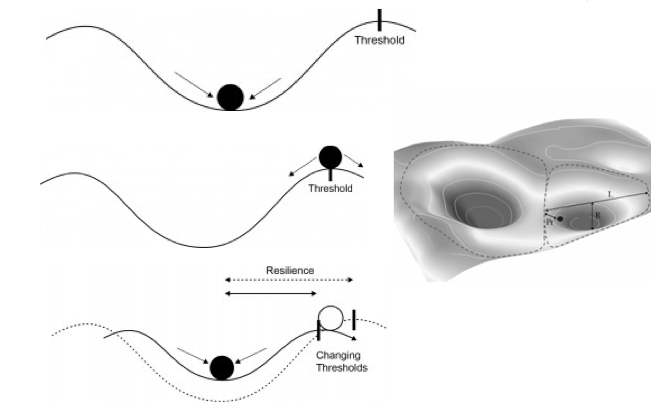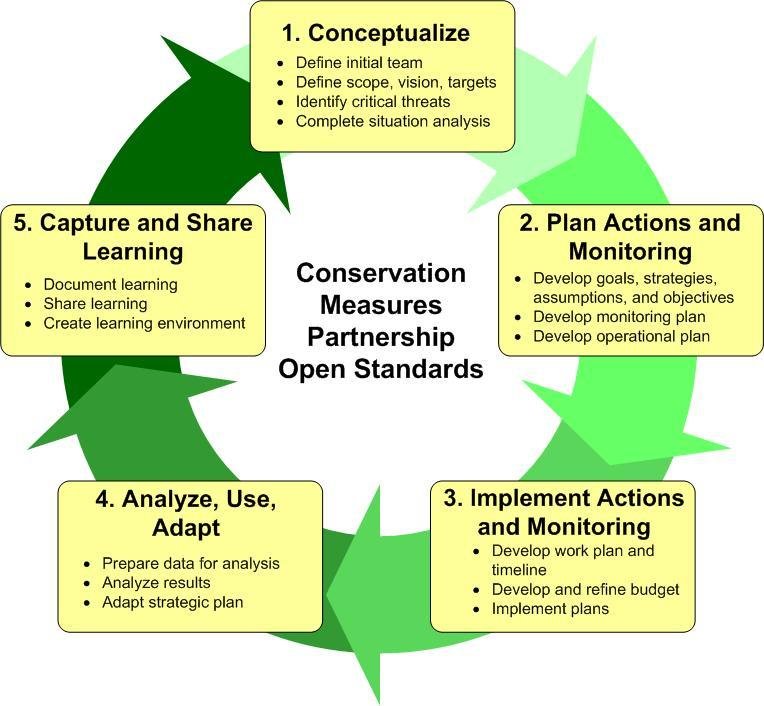Resilience and Sustainable Development
October 1st, 2015
Sustainable Development
- An approach to deal with environmental and social changes as a result of increasing human populations
- Rooted in proactive accommodation of growth
- Recognizes that:
- Current rates of resource use are not sustainable
- Addressing poverty is a critical element in sustainable future: planning = distributional effects
- Substantive institutional changes are needed

Bruntland Commission: 1987
- Developed working definition for sustainable development and concept of the three Es
- Development that meets the needs of the present without compromising the ability of future generations to meet their own needs
- Environment
- Economy
- Equity
"The earth is one, but we are not."
-Bruntland Commission
Tension at ends of the spectrum, between the rise from poverty and conspicuous consumption.

Powerful trends: Population Growth + Urbanization
From 13% in 1900 to 60% by 2030

2.5 billion added to urban population by 2050. But 90% of urban growth concentrated in developing nations.
Urbanization, Concentrated




Source for population info: http://esa.un.org/unpd/wup/Highlights/WUP2014-Highlights.pdf

The Capacity to Endure
But complexity in ecological systems complicates otherwise intentional decisions and rational planning
https://www.youtube.com/watch?v=ysa5OBhXz-Q
In development terms, we must consider urban ecology, or the overlap of human and natural systems.
- Ecological systems are complex and constantly adapting to gradient change, both natural + man made
- Optimal state is a moving target, and efficiency often does not equate to resiliency


How can we ensure sustainability in the face of the unknown?
Rate of change further complicates sustainable development.
Humans are usually good at noticing and responding to rapid change, but not so good at responding to things that change slowly.
"We tend to overestimate change in the next two years but underestimate it over the next ten." - Bill Gates
From sustainability to resiliency

So what's resilience in terms of urban ecology?
- Theme: Must cope with change. The world is not predictable.
- Persistence: Amount of change a system can undergo and still retain the same controls on function and structure
- Transformation: The degree to which a system is capable of self-organization
- Adaptation: Ability to build and increase the capacity for learning and adaptation in a system
Resiliency Theory

What it takes to build resiliency in socio-ecological systems:
- Diversity, Redundancy, and Anticipation
- Matching problem and solution at appropriate scale
- Embrace change and build Adaptive Management policies
Adaptive Management
Structured, but iterative, decision making framework that aims to reduce uncertainty over time through feedback and system monitoring.
Embraces the unknown as opportunity to learn and adapt policies over time. Not just plan and implement, but plan, implement, monitor, and adjust.

Sustainable Development
By Lucas Lindsey
Sustainable Development
- 1,400



